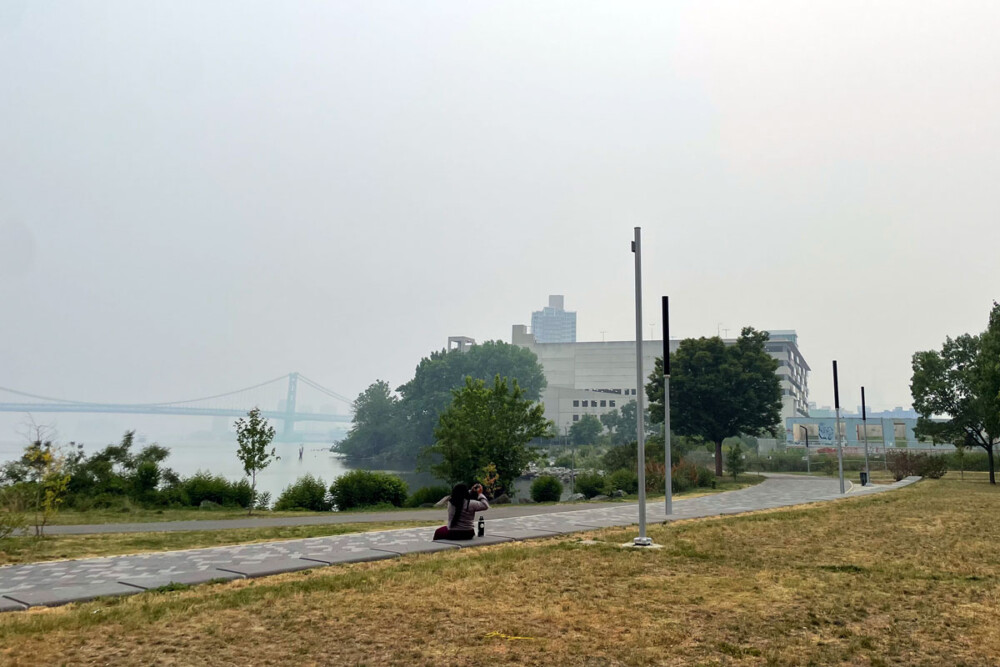
As air quality warnings for Philly return, more change their vacation plans
DEP declared Thursday a “Code Red” and Friday a “Code Orange” for Air Quality Action Day across the keystone state.
Although the air quality isn’t as dangerous as it was a few weeks ago, smoke from Canadian wildfires is again plaguing the Philadelphia region and state.
The Pennsylvania Department of Environmental Protection (DEP) declared Thursday to be a Code Red statewide and Friday to be Code Orange (with possible local conditions in Code Red). Wildfires in eastern Canada may likely contribute to continued advisories in the Code Orange range. Residents can check AirNow for current conditions and Fire and Smoke maps.
What does Code Orange mean?
According to DEP, children, sensitive populations such as older people, those who exercise or work outdoors and those with lung or respiratory conditions such as asthma, emphysema, or bronchitis should reduce or eliminate their outdoor activities on a Code Orange day.
What does Code Red mean?
Young children, the elderly, and those with respiratory problems, such as asthma, emphysema, and bronchitis, are especially vulnerable to the effects of air pollution and should avoid outdoor activities, and everyone else should reduce prolonged or heavy exertion on a Code Red day.
Wildfires interrupting summer plans
Wildfires also impact summer plans for Americans.
Up to 54% of Northeasterners are changing recreational plans to steer clear of wildfire-prone areas, according to a new survey. (However, the survey was conducted when there was poor air quality in the Northeast, which may have affected survey results.)
Another climate change risk, Lyme disease, has also impacted summertime plans, with 50% of Northeasterners reporting that they’ve changed recreational plans to avoid ticks.
With the effects of climate change increasing over time, wildfire smoke will likely continue to impact the region’s air quality in the future. “There’s nowhere to escape the smoke,” as David Wallace Wells said.









